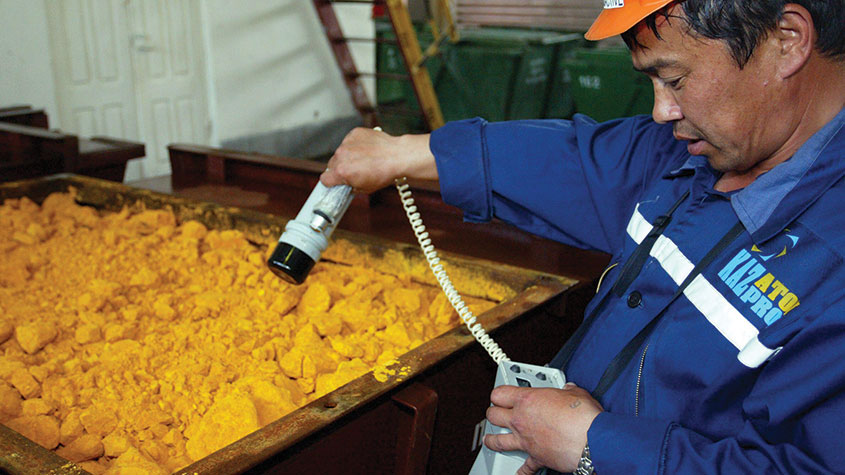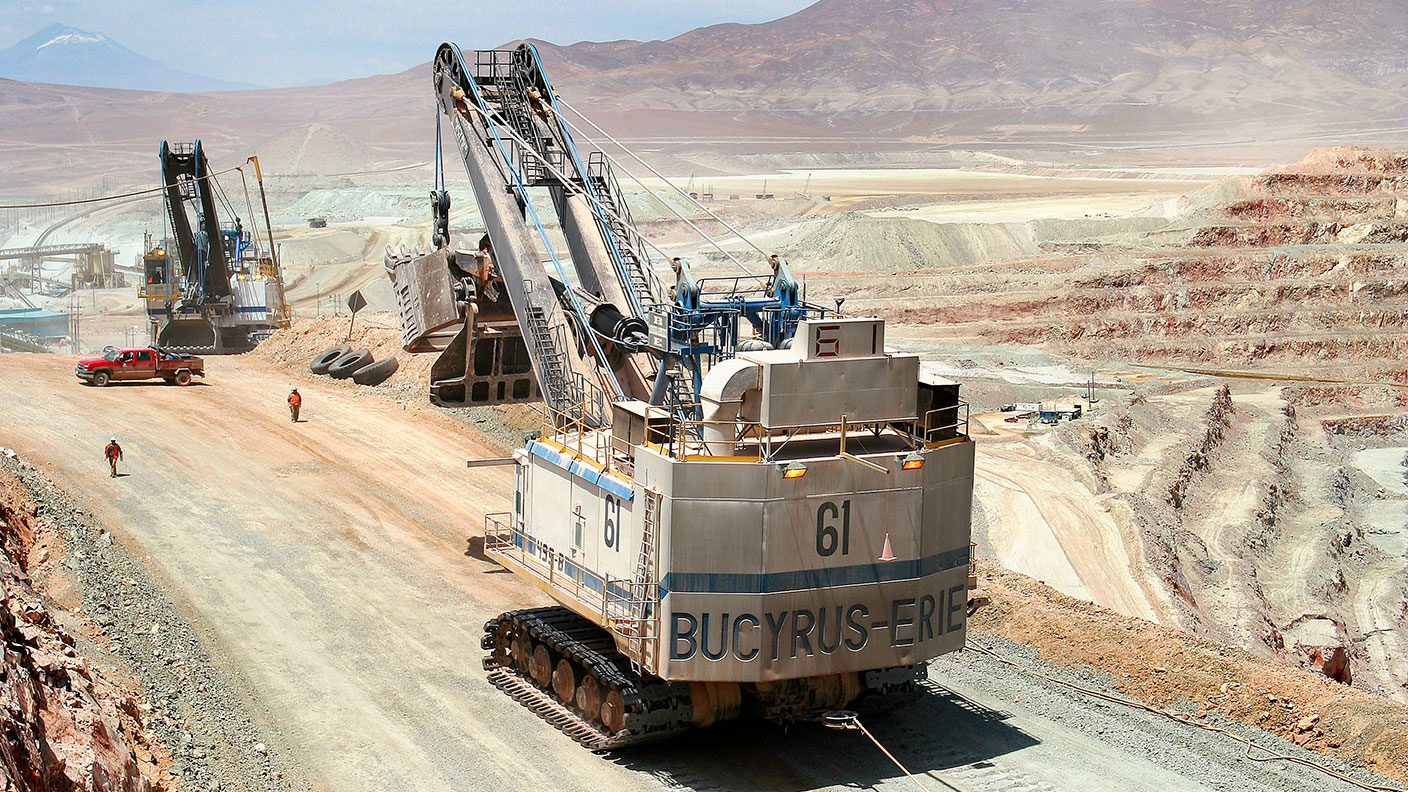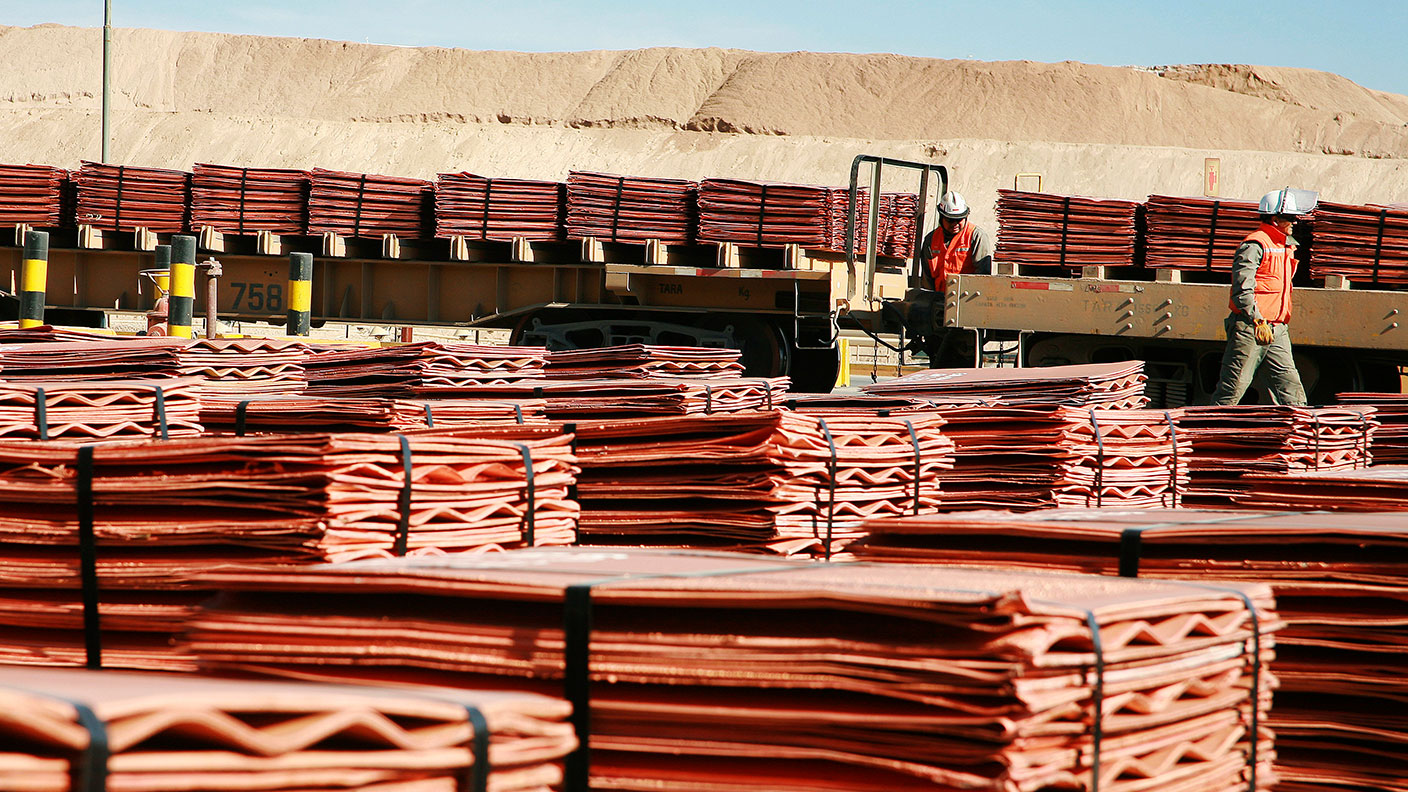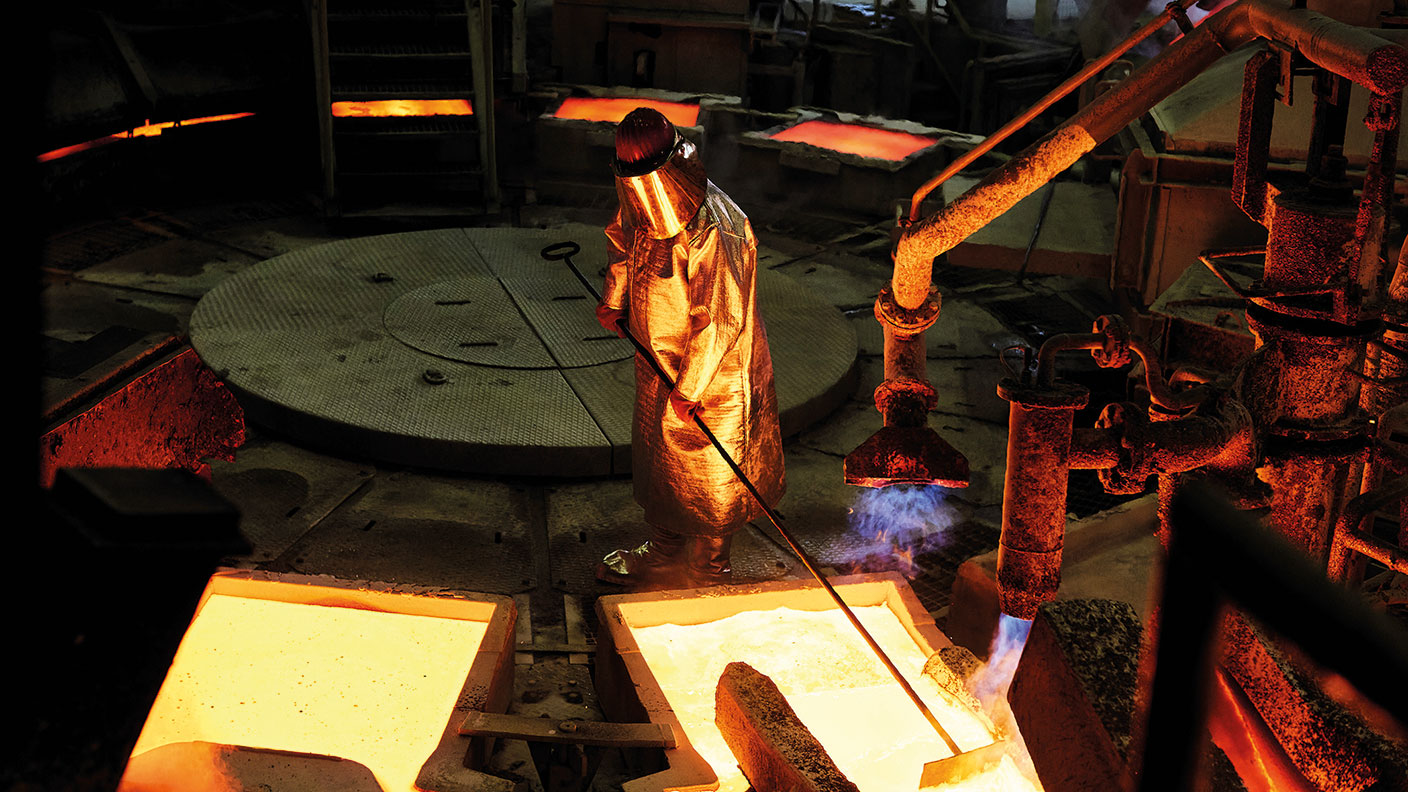Barrick and Randgold: a mega merger in gold
Canada’s Barrick Gold and London-based Randgold Resources are tying the knot. Why now, and will the deal prove a success?
Get the latest financial news, insights and expert analysis from our award-winning MoneyWeek team, to help you understand what really matters when it comes to your finances.
You are now subscribed
Your newsletter sign-up was successful
Want to add more newsletters?

Twice daily
MoneyWeek
Get the latest financial news, insights and expert analysis from our award-winning MoneyWeek team, to help you understand what really matters when it comes to your finances.

Four times a week
Look After My Bills
Sign up to our free money-saving newsletter, filled with the latest news and expert advice to help you find the best tips and deals for managing your bills. Start saving today!

Canada's Barrick Gold and London-based Randgold Resources are tying the knot. Why now, and will the deal prove a success? Marina Gerner reports.
Barrick Gold's bet on growth "looks like a reverse takeover", says Clara Ferreira Marques on Breakingviews. The world's biggest gold producer has announced a $18bn, all-share tie-up with Africa-focused Randgold Resources. But it's the smaller, London-listed Randgold that appears to be "in the driving seat of this reboot". The company is contributing its "straight-talking boss and entrepreneurial spirit [to] a restructuring push that had reached its limit", Ferreira Marques notes. The combination brings together "a former high-flying banker from Goldman Sachs [Barrick's John Thornton] and a pugnacious South African miner and geologist", say Henry Sanderson and Neil Hume in the Financial Times.
How they govern together will determine the success of the deal, which will create the world's biggest gold company with annual production of 6.5 million ounces of gold, eclipsing US-listed Newmont Mining, its nearest competitor. The new company, dubbed "Brandgold" by analysts, will also have five of the ten biggest and most efficient gold mines in the world.
MoneyWeek
Subscribe to MoneyWeek today and get your first six magazine issues absolutely FREE

Sign up to Money Morning
Don't miss the latest investment and personal finances news, market analysis, plus money-saving tips with our free twice-daily newsletter
Don't miss the latest investment and personal finances news, market analysis, plus money-saving tips with our free twice-daily newsletter
Randgold Resources' stellar decade
For Randgold Resources, a tie-up with Barrick Gold "answers questions about its long-term growth prospects", say Sanderson and Hume. It has never reported a quarterly loss, "an impressive feat for a company that mines a volatile commodity". It is among the FTSE 100's top performers and has gained 120% in the past decade But it has not found a big mine in a long time, while tough mining laws in the Democratic Republic of Congo are an additional headache.
Barrick Gold has gone through some pain since the gold price tumbled from a 2011 peak. Thornton, who has been chairman for four years, has cut costs, slashed debt, and sold assets. He now wants to hire Mark Bristow, one of the industry's most highly regarded executives, to help Barrick Gold exploit its size. Bristow will manage the expanded firm's day-to-day business, while Thornton will provide leadership at board level and focus on strategic issues.
The two miners have agreed a nil-premium takeover, says Paul Davies in the Wall Street Journal. "But the puzzle here is why Randgold's investors should give up control they only get 33% of the combined group and contribute $800m in cash from the company's balance sheet without a takeover premium." Allowing Randgold's management "to apply its development expertise and hard-nosed efficiency" to Barrick sounds appealing, but why shouldn't Randgold's shareholders get paid for that? Randgold's board is recommending the deal to investors. But Barrick "may yet have to find something extra to make its offer shine". Meanwhile, we can expect more consolidation in the sector. As James Rasteh of Coast Capital Management told the FT, the main players "are starting to run out of reserves".
Get the latest financial news, insights and expert analysis from our award-winning MoneyWeek team, to help you understand what really matters when it comes to your finances.
Marina Gerner is an award-winning journalist and columnist who has written for the Financial Times, the Times Literary Supplement, the Economist, The Guardian and Standpoint magazine in the UK; the New York Observer in the US; and die Bild and Frankfurter Rundschau in Germany.
Marina is also an adjunct professor at the NYU Stern School of Business at their London campus, and has a PhD from the London School of Economics.
Her first book, The Vagina Business, deals with the potential of “femtech” to transform women’s lives, and will be published by Icon Books in September 2024.
Marina is trilingual and lives in London.
-
 Should you buy an active ETF?
Should you buy an active ETF?ETFs are often mischaracterised as passive products, but they can be a convenient way to add active management to your portfolio
-
 Power up your pension before 5 April – easy ways to save before the tax year end
Power up your pension before 5 April – easy ways to save before the tax year endWith the end of the tax year looming, pension savers currently have a window to review and maximise what’s going into their retirement funds – we look at how
-
 These 2 stocks are set to soar
These 2 stocks are set to soarTips The returns from these two aluminium and tin stocks could be spectacular when the commodity cycle turns says David J Stevenson.
-
 The best ways to buy strategic metals
The best ways to buy strategic metalsTips Weaker prices for strategic metals in the alternative-energy sector are an investment opportunity, says David Stevenson. Here, he picks some of the best ways to buy in.
-
 A lesson for investors from a ill-fated silver mine
A lesson for investors from a ill-fated silver mineAnalysis Mining methods may have changed since the industry’s early days, but the business hasn’t – digging ore from the ground and selling it at a profit. The trouble is, says Dominic Frisby, the scams haven't changed either.
-
 The natural resources industry is in a tight spot – which is bad news for the rest of us
The natural resources industry is in a tight spot – which is bad news for the rest of usOpinion The natural resources industry is in a bind. We need it to produce more energy and metals, but it has been starved of investment, plagued by supply chain issues, and hobbled by red tape. That’s bad news for everyone, says Dominic Frisby.
-
 How to invest in the copper boom
How to invest in the copper boomTips The price of copper has slipped recently. But that’s temporary – the long-term outlook is very bullish, says Dominic Frisby. Here, he explains the best ways to invest in copper.
-
 Why investors should consider adding Glencore to their portfolios
Why investors should consider adding Glencore to their portfoliosTips Commodities giant Glencore is well placed to capitalise on rising commodity prices and supply chain disruption, says Rupert Hargreaves. Here’s why you should consider buying Glencore shares.
-
 How to invest in the multi-decade boom in industrial metals
How to invest in the multi-decade boom in industrial metalsTips The price of key industrial metals has already begun to rise. The renewable energy transition will take them higher, says David Stevenson. Here's how to profit.
-
 Avoid China’s stockmarket – here’s what to invest in instead
Avoid China’s stockmarket – here’s what to invest in insteadOpinion China’s stockmarket is not a good place for investors to be. But you can't just ignore the world's second-largest economy, says Dominic Frisby. Here, he picks an alternative China play.